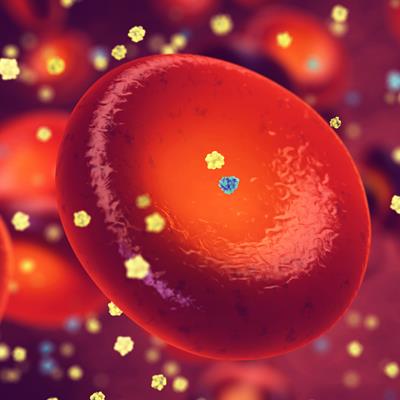June 1, 2023 -- Children's Hospital of Philadelphia (CHOP) researchers found that deep sequencing of the genome in the tissue samples and cell-free DNA of patients with potentially life-threatening vascular anomalies revealed genetic variants previously not captured by conventional genetic sequencing methods. The research, published Thursday in the journal Nature Medicine, led to improvements in over 60% of the patients placed on targeted therapies related to these newly found genetic variants.
Vascular anomalies -- a variety of conditions that affect the veins, arteries, and lymphatic system -- can be classified as benign or malignant vascular tumors, or as vascular malformations. While some vascular anomalies resolve over time, others can cause visible deformities, impede swallowing or breathing, or cause severe pain. Some can be life-threatening.
A minority of patients with vascular anomalies have inherited variants that are detectable in blood samples. However, about 90% of these patients have acquired, uninherited somatic mutations that are usually present at very low levels and only in certain cell or tissue types. The disease-causing variant in the mutated gene of interest is often present at frequencies of less than 1%, making them difficult to detect with conventional sequencing techniques.
CHOP researchers had previously discovered a genetic variant responsible for a vascular anomaly affecting one patient's lymphatic system. This allowed them to repurpose an existing drug, improving the patient's breathing capacity and dramatically reducing the swelling in his legs.
The team hypothesized that other patients with vascular anomalies might also have mutations driving diseases that would benefit from targeted therapies. However, the gene variants responsible for these conditions remained uncaptured, partly due to insufficient genomic sequencing data.
Seeking to capture the underlying genetics behind these severe vascular anomalies, researchers studied the DNA from CD31+ cells or cell-free DNA isolated from lymphatic fluid or plasma from 356 patients, including 104 with primary complex lymphatic anomalies. The isolated DNA underwent thorough deep sequencing, which involved repeatedly sequencing certain areas of interest in the genome. This process achieved a variant allele frequency of .15%, meaning it could detect variants with frequencies as low as .15% in a given specimen. The deep sequencing uncovered several somatic variants that were identified for the first time.
By identifying these variants, the team was able to provide a molecular diagnosis, including previously undescribed genetic causes, in 41% of patients with primary complex lymphatic anomalies and 72% of patients with vascular malformations. As a result, 69 patients received or planned to receive new medical therapies, and 63% of patients experienced marked improvement in their symptoms.
"The ability to link a patient's phenotype to the causative genotype of the vascular anomaly has been critical for patients," co-author Dr. Denise Adams, pediatric hematologist-oncologist at CHOP, said in a statement. "This has enabled treatment with directed medical therapy that has significantly improved our patients' quality of life."
Copyright © 2023 scienceboard.net















